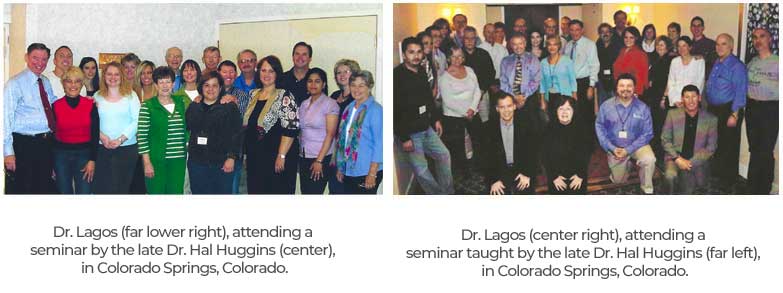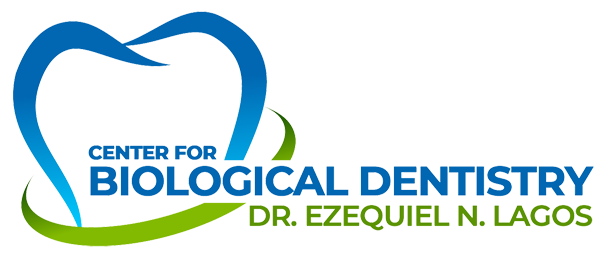Frequently Asked Questions

What Is Biological Dentistry?
Biological dentistry also known as natural dentistry or holistic dentistry is an integrative approach to strengthen a person’s immune system by using nontoxic restoration materials. Biological Dentistry takes into account the impact that dental toxins and hidden infections can have on the overall health of a patient.
It has been estimated that at least half of all chronic degenerative illness and some types of cancer can be linked to silver-mercury fillings, allergy producing dental materials, root canals, hidden dental infections, and the misalignment of the teeth and jaw.
What is Dr. Huggins’ Protocol for Dental Revision?
The Huggins Protocol for Dental Revision is a way to safely remove dental toxins from the mouth, including mercury fillings and root-canal treated teeth. This protocol involves the use of safe methods for the removal of mercury and the use of biocompatible dental materials.

Do you recommend root canals?
Root canals can be very toxic and can become reservoirs for bacteria that cause infection. Patients with immunological problems, excessive toxicity, or cancer are especially susceptible to the effects of this procedure because their immune systems are not capable of fighting off any possible infection that might be harbored there.
What is the Mission of the Center for Biological Dentistry?
The mission of the Center for Biological Dentistry is to help patients in their efforts to strengthen their immune system and health by providing a total dental revision (TDR) using biocompatible materials and safe procedures.
At the Center for Biological Dentistry we are committed to helping our patients overcome autoimmune disease and environmental sensitivity, adhering to the strictest safety procedures while removing toxins and sources of infection in the mouth.
What is the focus of a biological dentist?
A biological dentist has a greater concern for whole-body wellness. An integrative approach takes into account the impact that dental toxic materials such as mercury and fluoride can have on the overall health of a patient.
What makes dental Dr. Lagos’ practice unique?
With thirty eight years of experience and his gentle dental care, Dr. Lagos has extensive training in the sequential removal of toxic dental materials and the prevention of future exposure to them. Dr. Lagos received this extensive training under the late Dr. Hal Huggins, a pioneer in biological dentistry.
Dr. Lagos is a proud member of the International Academy of Oral Medicine and Toxicology and a certified member of this organization for the safe removal of mercury amalgam fillings. Dr. Lagos obtained SMART certification from the IAOMT after completing coursework related to the dangers of mercury exposure and incorporating the rigorous safety measures required for the safe removal of mercury amalgam.
Dr. Lagos is also a proud member of the International Academy of Biological Dentistry and Medicine.
Being that his dental practice is in Mexico, Dr. Lagos offers excellent care in biological dentistry at a fraction of the cost listed in the United States.
What is TDR or Total Dental Revision?
A Total Dental Revision (TDR) refers to a complete removal of all identifiable dental toxicity, including:
- Replacement of mercury amalgam fillings with biocompatible composite fillings.
- Replacement of crowns with biocompatible materials.
- Extraction of root canal treated teeth with removal of all surrounding infected ligament and bone.
- Complete removal of dental implants.
- Complete cleaning of all cavitations (cavitation surgery).
What is biocompatibility in dentistry?
Biocompatibility is a term to describe the effects of dental materials on the human body.
We determine biocompatibility with a blood test that reveals how the patient’s own immune system reacts to a variety of dental materials. This process ensures that we use the least reactive materials when treating our patients because their safety and well-being are very important to us.
Are all white fillings also known as “composites” biocompatible?
Not all composites are made with the same ingredients. Many contain chemicals that can leach out as toxins. We recommend a blood test to determine which composite materials are most compatible with your immune system.
Why is acupressure used by Dr. Lagos in dental procedures?
In his experience as a biological dentist over several decades Dr. Lagos has seen patients recover from dental procedures much better and faster. Before incorporating acupressure into his protocol many years ago, the post-operative pain was always greater and harder to control. Patients with neurological diseases like MS and ALS demonstrate positive changes within 24 hours after dental revision procedures as a result of using acupressure.
Why is intravenous vitamin C an important component of a dental revision with Dr. Lagos
During a total dental revision, there is a risk of being re-injured by mercury when it is released, and the intravenous Vitamin C neutralizes the circulating toxins. In addition, the Vitamin C IV also supports and strengthens the immune system.
Why is a lymphatic massage important in a dental treatment plan?
A lymphatic massage by a physical therapist is part of the protocol that Dr. Lagos follows to prepare his patients for dental surgery. It provides the movement and flexing of muscles to push and pull the lymphatic fluids through the body, draining away any infection or toxins. The lymphatic massage also helps deliver the nutrients that teeth and gums need to stay healthy.
Are implants safe?
Anything implanted into bone, other than the patient’s own issue, will create an autoimmune disease. Some patients will experience a significant autoimmune reaction sooner than others, but it’s only a matter of time. Eventually even materials that are listed as “least reactive” in blood tests for crowns or bridges (such as zirconia) will start an autoimmune reaction if it is used as an implant.
Should a broken root tip left in the jaw be a concern?
A broken root tip in the jaw is a dead tooth. It produces toxins that can produce high blood pressure and neurological symptoms or diseases. A broken root tip should be removed by a dentist who knows how to treat the periodontal ligament with a cavitation procedure with IV protection because there are toxins present around the root tip.
Are there risks associated with the amalgam removal?
All dental work has inherent risks. However, Dr. Lagos follows the Huggins Protocol, which has the highest standards in the selection of materials and procedures. In addition, Dr. Lagos also adheres to the strictest standards of the International Academy of Oral Medicine and Toxicology. Dr. Lagos has obtained SMART (Safe Mercury Amalgam Removal Technique) certification from the IAOMT. He has completed coursework related to mercury and the safe removal of amalgam fillings, consisting of scientific readings, online learning, and tests. The educational programming includes learning about the application of the rigorous safety measures, including the utilization of specific equipment. As a dentist who has achieved SMART Certification, Dr. Lagos is recognized for being knowledgeable about the Safe Mercury Amalgam Removal Technique, and for adhering to the standards of the Academy.
